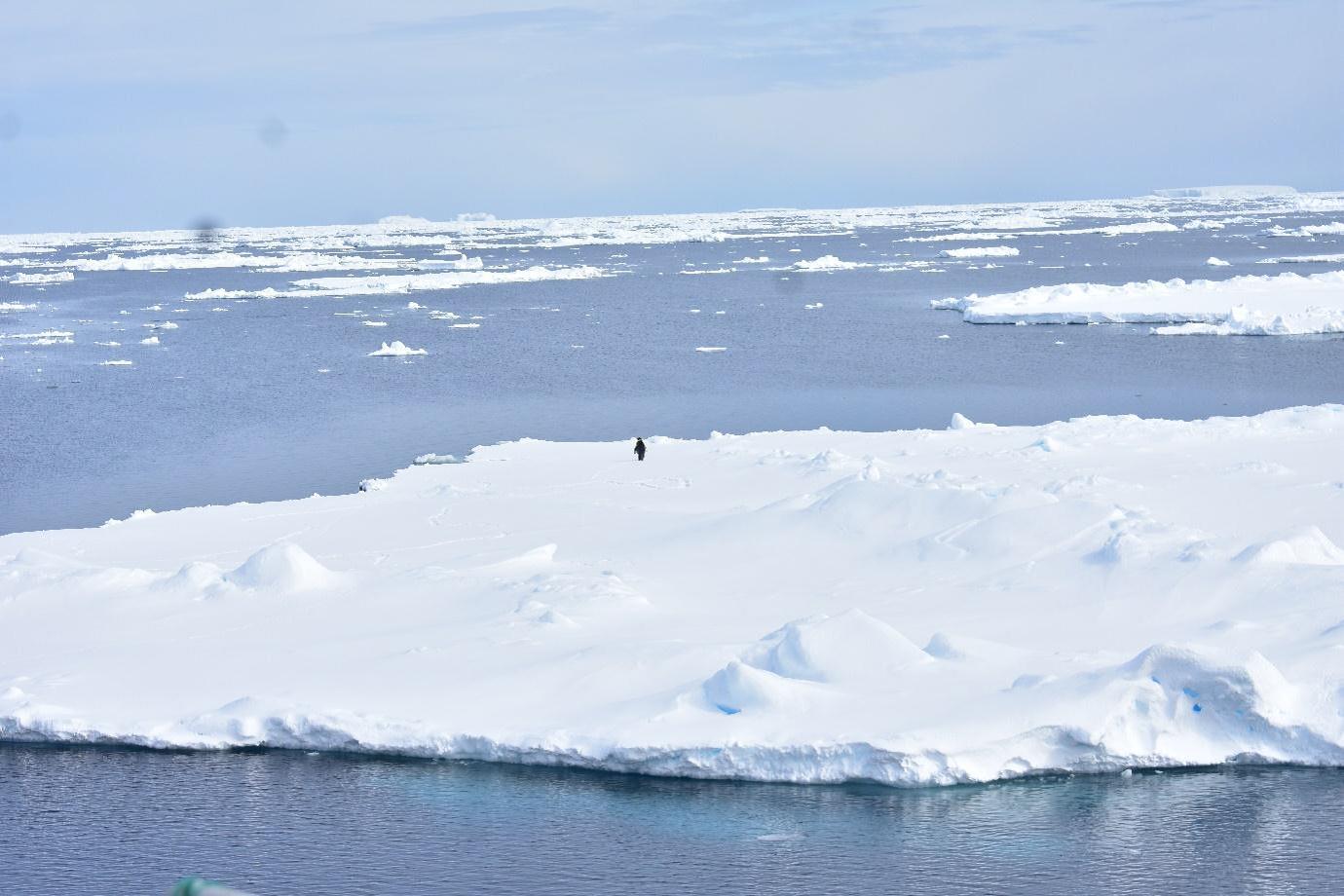A recent study led by Dr. Babula Jena and colleagues from the National Centre for Polar and Ocean Research, in collaboration with the British Antarctic Survey, reported unprecedented hindrance in Antarctic ice expansion and ice retreat ahead of the annual ice maximum in 2023.
Antarctic Ice Trends
- Historical Trends: Antarctic sea ice experienced a moderate increase until 2015, followed by a sudden decrease since 2016.
- Recent Observations: From 2016 to 2023, Antarctic summers witnessed extremely low sea ice conditions, with unprecedented slow ice expansion or retreat in 2023.
Causes of Ice Conditions in 2023
- Excessive Upper-Ocean Heat: Contributed to reducing ice expansion in 2023.
- Atmospheric Circulation Changes: Played a significant role, notably the deepening of the Amundsen Sea Low and its eastward shift, resulting in strong northerly flow across the Weddell Sea.
- Wind Patterns: Record atmospheric warming and northerly winds influenced ice-edge positions, particularly in the Ross Sea.
- Polar Cyclones (Storms): Associated with extreme winds and high ocean waves, contributing to slow ice expansion or retreat.
Implications of Low Ice Conditions
- Global Warming Amplification: Through the ice-albedo feedback process.
- Impact on Southern Ocean Life: Affects regional ecosystems.
- Ocean Circulation: Potential changes.
- Ice Shelf Stability: Implications for stability.
- Sea Level Rise: Influence on sea levels.
Uncertainties and Further Research
- Short Satellite Observation Records: Approximately 45 years make long-term assessments challenging.
- Natural Variability vs. Anthropogenic Factors: The role of anthropogenic factors in triggering anomalous events needs clarification.
- Need for Investigation: Interaction between anthropogenic forcing and climate variability requires further study.
About the National Centre for Polar and Ocean Research (NCPOR)
- Role: India’s premier research and development institution for polar and ocean sciences.
- Responsibilities: Conducts research activities in polar and ocean sciences.
- Affiliation: Under the Ministry of Earth Sciences.
Multiple Choice Questions (MCQs):
- What caused unprecedented hindrance in Antarctic ice expansion and retreat in 2023?
- a) Intense snowfall
- b) Excessive upper-ocean heat and atmospheric circulation changes
- c) Volcanic activity
- d) None of the above
- Answer: b) Excessive upper-ocean heat and atmospheric circulation changes
- What contributed significantly to the slow ice expansion in Antarctica in 2023?
- a) Decreased wind intensity
- b) Reduced ocean temperatures
- c) Record atmospheric warming and changes in wind patterns
- d) Melting polar ice caps
- Answer: c) Record atmospheric warming and changes in wind patterns
- How did polar cyclones contribute to ice conditions in Antarctica?
- a) By decreasing wind speed
- b) By increasing ocean temperatures
- c) By causing slow ice expansion or retreat
- d) By promoting ice formation
- Answer: c) By causing slow ice expansion or retreat
- What are the potential implications of low ice conditions in Antarctica?
- a) Reduced global warming effects
- b) Minimal impact on Southern Ocean life
- c) Stability of ice shelves
- d) Amplification of global warming and impact on Southern Ocean life, ocean circulation, ice shelf stability, and sea level rise
- Answer: d) Amplification of global warming and impact on Southern Ocean life, ocean circulation, ice shelf stability, and sea level rise
- What organization conducted the study on Antarctic ice conditions?
- a) British Antarctic Survey
- b) National Centre for Polar and Ocean Research (NCPOR)
- c) Ministry of Earth Sciences, India
- d) All of the above
- Answer: b) National Centre for Polar and Ocean Research (NCPOR)
